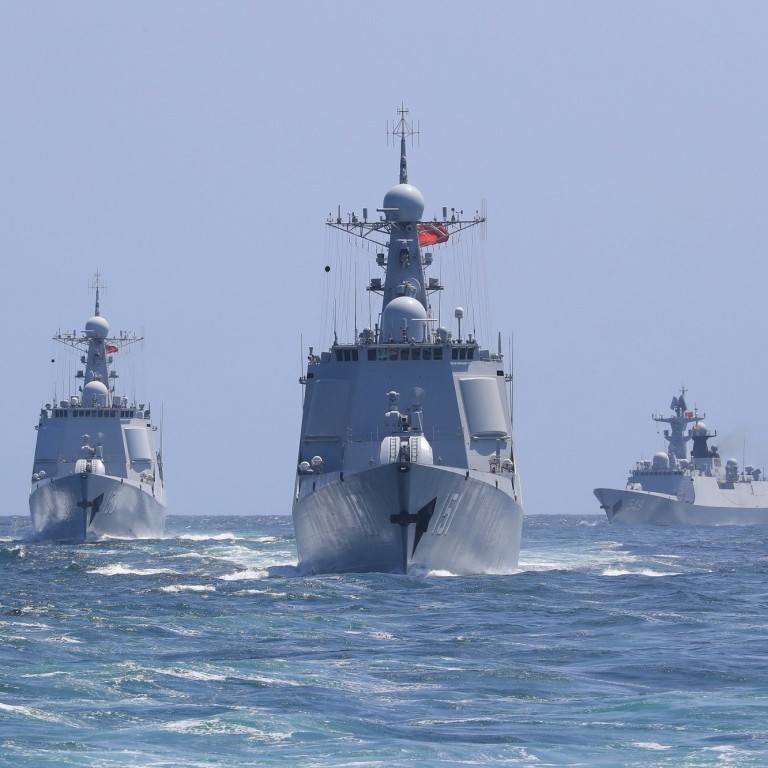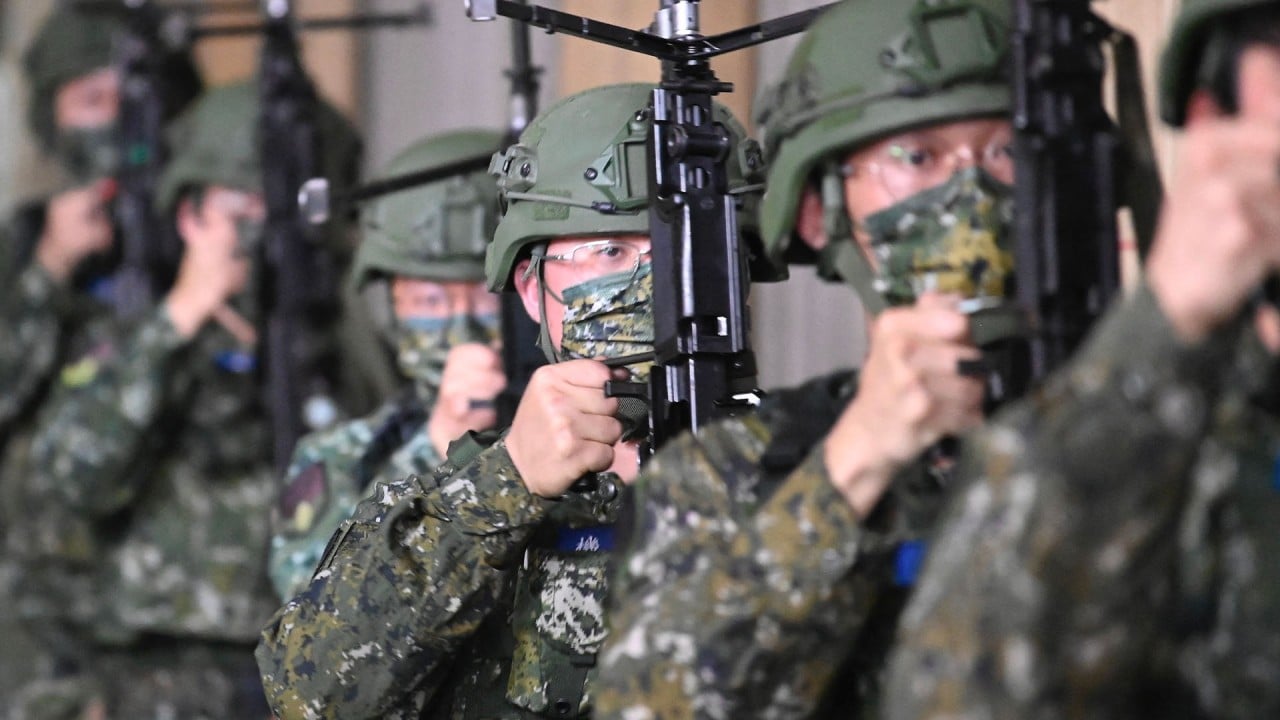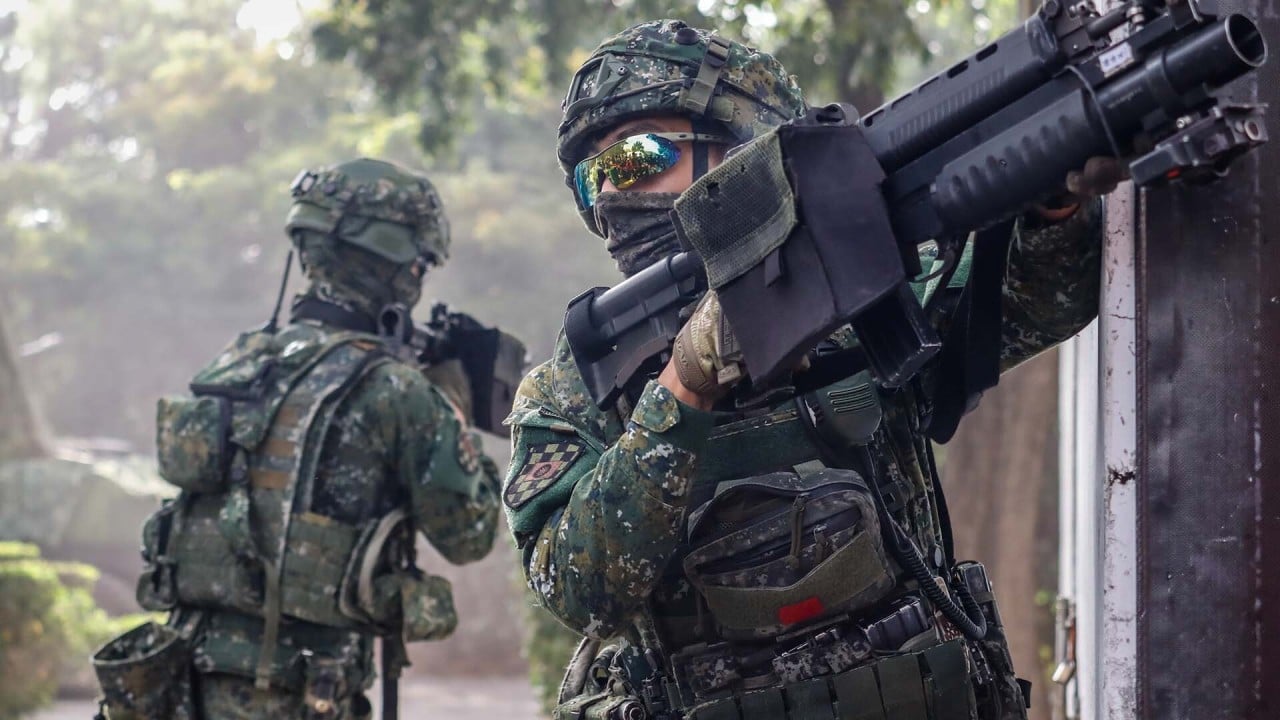
What would happen if mainland China cut off Taiwan’s energy supplies?
- The island is spending millions on missile defence systems but it could have another major vulnerability
- A blockade against oil and gas shipments could be a less risky option than military action for Beijing, observers say
This is the first in a two-part series on tensions between mainland China and Taiwan. Here, Jack Lau looks at what would happen if mainland China cut off Taiwan’s energy supplies.
Another sale went through last week.
But observers say Beijing could deploy a less-risky, indirect weapon in its arsenal to help force the island into its fold – an energy blockade.
A blockade would affect the lives of everybody on the island, pushing up prices and isolating Taiwan to an extent that unification talks could be a real option, they say.
Is Taiwan’s US$95 million missile deal value for money?
In its 2021 National Defence Report, the ministry said the People’s Liberation Army was capable of blocking key harbours and airports and closing off major routes at sea and in the air.
The Pentagon also said in its 2021 report to the US Congress that a blockade would cut off vital imports to Taiwan to force Taipei’s capitulation and a rapid surrender.
Taiwan imports almost all of its natural gas and a blockade of its main ports would effectively cut off access to fresh supplies.
Alexander Huang Chieh-cheng, an associate professor of strategic studies at Tamkang University in Taiwan, said the island had only about two weeks of liquefied natural gas and about 90 days of crude oil in its strategic reserves.
“If you’ve got only two weeks of liquid gas then probably you cannot call that strategic,” Huang said.
As a result, Taipei would need help from maritime powers.
“That’s an area that is not fully explored and also a constant debate between the Taiwanese navy and United States – about what kind of roles and function – or capability – we should have,” he said.
“Of course, for the Taiwanese navy, we want to have full capacity, we want bigger ships, we want an Aegis system so we can go far and direct independent naval operations to protect our shipping lanes.”
To impose a blockade, the PLA would only need to put boats off of Kaohsiung in southern Taiwan and Keelung in the north – cities that have the island’s largest ports – to disrupt commercial shipping, according to Drew Thompson, a visiting senior research fellow at the Lee Kuan Yew School of Public Policy at the National University of Singapore.
“It wouldn’t need to put up a big iron ring around Taiwan,” Thompson said.
“In China’s case, it wouldn’t necessarily have to enforce it by military means; the declaration alone would be very, very, very disruptive.”
In addition to rising prices and massive capital outflows from Taiwan, a threat alone would trigger war clauses in insurance contracts and deter commercial ships from calling at Taiwan, with ripple effects across the South China Sea, he said.
The US Energy Information Administration said over 30 per cent of the world’s crude oil trade and 40 per cent of global liquefied natural gas trade transited through the sea in 2016.
Nations in the Middle East rely on the route to ship oil exports to customers in the region, including Japan, South Korea, Thailand and Taiwan.
But setting up a blockade or threatening to do so would also be felt in mainland China.
The action would amount to declaring a war zone close to major Chinese ports, Thompson said, and increase shipping costs and risks, and war risk insurance rates for the port of Shanghai.
“This would be a pretty big economic burden on major commercial centres in China as well for international shipping. So I don’t think it’s something that China would do lightly,” he said.
China should also expect international economic sanctions against it if it did impose a blockade, he said. “The global economy will suffer, including China, which is what we’re seeing now with rising inflation, economic disruption.”
Huang, of Tamkang University, said the PLA would also have the added expense of needing to maintain air superiority in some areas to enforce the blockade.
Fifty years later, despite US pivot, Taiwan has done well economically
Ni Lexiong, a Shanghai-based military analyst, said a blockade would be a less risky move for Beijing than direct confrontation with the Taiwanese and US navies.
It would force Beijing and Taipei into talks, in which Beijing would try to get Taiwan to agree to the “one country, two systems” principle – an idea that both the ruling and main opposition parties in Taiwan have rejected.
Ni said one of the main problems for Beijing was that the PLA’s main weapons, equipment and supplies were imported from Russia and the Russian military’s worse-than-expected performance in the war in Ukraine raised doubts about whether Beijing’s arms could compete with those supplied to Taiwan by the US.
“The US wouldn’t give Taiwan aircraft that are no match for our planes,” he said. “It has analysed our planes and are very clear about their capabilities.”
Nevertheless, Huang said, Taiwan needed to be equipped with long-range naval capabilities and could not rely solely on the maritime powers that had promised to protect Taiwan.
“We do not have any diplomatic relationship with any maritime power and we are not treaty allies to any,” he said.
“So with all the good intention, no matter you said our assurances to Taiwan is ironclad or rock solid, as a defence planner, we cannot simply build on a verbal promise that say, ‘don’t worry, we’ll help’.
“We need to make our policy planning based on that no one will help Taiwan.”



